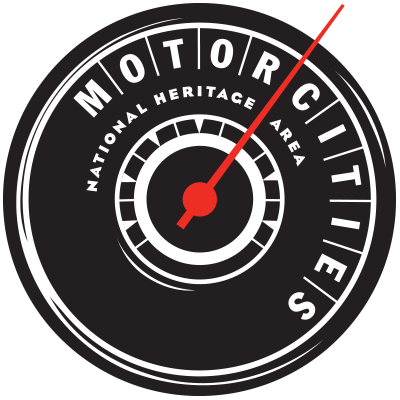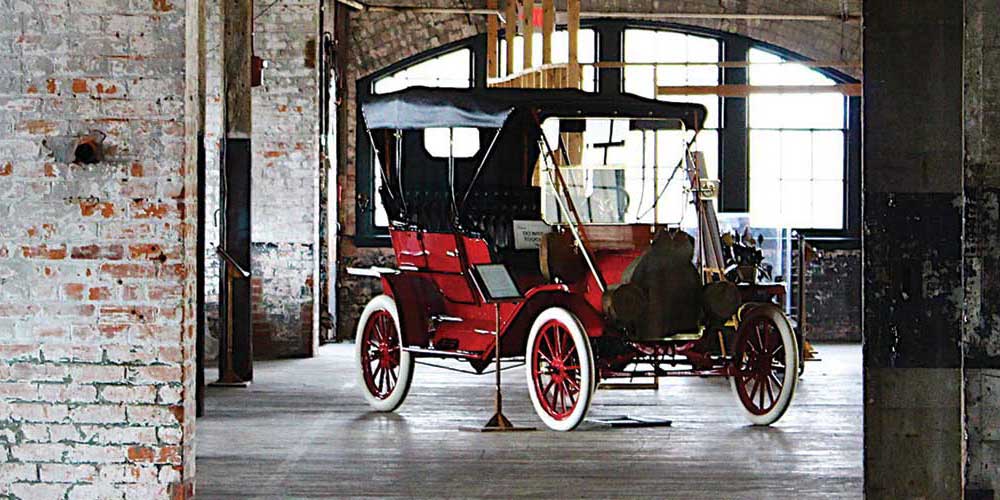By: Robert Tate, Automotive Historian/Researcher
Images: Courtesy of the National Automotive History Collection
Posted: 02.10.2015
In the early years of 1903-1912, the Maxwell-Briscoe Motor Car Company was the starting point for the production and manufacturing of Maxwell Automobiles. On July 4, 1903, with a $3000 backing investment from C. W. Althouse, Briscoe entered into a contract with Maxwell to build and produce a prototype automobile that would compete with other vehicles in the automotive industry. Benjamin Briscoe was born in Detroit on May 24, 1867; he was the son of Joseph A and Sarah Smith Briscoe. Jonathan Maxwell was born on September 3, 1894, in Peru, Indiana. He was a machinist by trade who had worked his way up from many apprentice assignments from his adolescence to journeyman foreman position in 1892, and later became a Master Mechanic in a roundhouse of a western railroad.
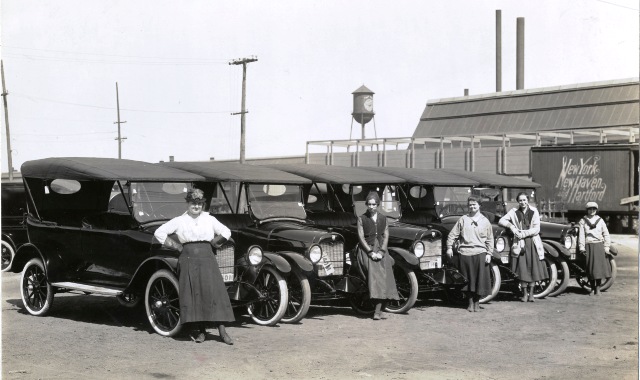 Maxwell Woman Employees 1917
Maxwell Woman Employees 1917
The Maxwell Company had factories in Detroit, New Castle, Indianapolis, Tarrytown, New York, and Dayton, Ohio. In 1907, after an unfortunate fire that destroyed the Tarrytown New York factory, the Maxwell-Briscoe Company constructed a large automobile manufacturing building called the Indianapolis Foundry in New Castle, Indiana, a suburb of Indianapolis. The Maxwell factories represented an investment of thirty-eight million dollars. The factories contained fifty-seven acres of floor space and they employed twelve thousand men and women. This story, however, is about the women who were employees of the Maxwell Motor Company in 1917.
As a point of reference, in 1917, a family could purchase a new home for $5,520 and if you were purchasing a new Maxwell Coupe automobile, the purchasing price was $1540. The average household income in the U.S in 1917 was $800 dollars per year.
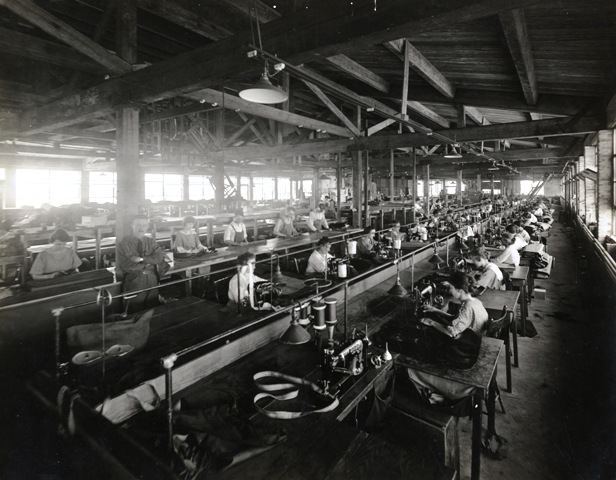 Women Factory Workers at Sewing Machines 1917
Women Factory Workers at Sewing Machines 1917
During the early years of Maxwell Motors, women were an essential part company and helped to move it forward. During World War I, the Maxwell Motor Car Company offered many new positions for women in the work place. From factory workers to clerical assistants, and sales women to handling machinery, women were beginning to make their mark on automotive history.
In 1914, the Maxwell Motor Car Company in New York began to open its office to hire talented saleswomen to sell Maxwell automobiles to the buying public. The Maxwell Motor Car Company said, “A saleswomen is to be secured for each one of the company’s 52 sales districts in the United States and she will cover the district manager, aiding the dealers and branches in their retail work”. The Maxwell Car Company organized the “Maxwell Women Sales Bureau” which included some of the most talented women in the industry. Some of them were Crystal Eastman, Alice Carpenter, who was the field organizer, Mary Garrett Hay, and Jean Earl Moehle. Jean Moehle was a new saleswomen who helped demonstrate that not only could a woman understand machinery, but she could handle it as well. Some of these women also used their college education to implement many of their great ideas.
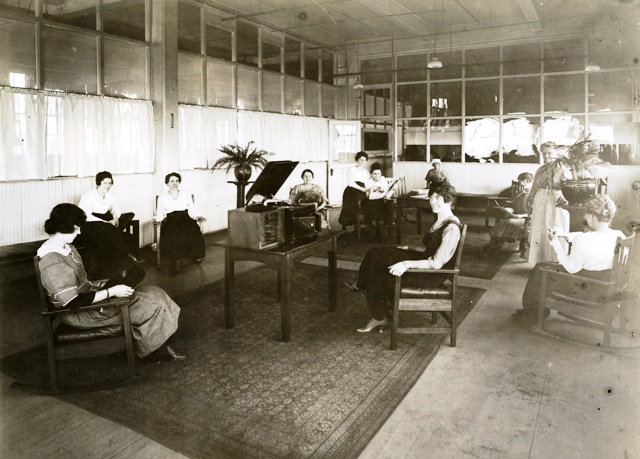 Women of Maxwell Company listening to the Sound of Music 1917
Women of Maxwell Company listening to the Sound of Music 1917
During the early days in the work place, the promotion of women did not usually lead to a rise in the salaries for them. Their salaries were already much lower than their male co-workers. Although women were now a part of the factory labor industry, the work was hard and the days were long. From sheer lifting, carrying, and weighing material, the daily process that many women had to perform was often strenuous. Sitting on stools in front of sewing machines, many women were also responsible for processing material for the new Maxwell automobiles interiors. Even still, within the factories, women were sometimes limited in the jobs they were allowed to perform.
By 1917, a survey regarding women concluded that 68% of women had changed jobs since the World War I began; 16% had moved out of domestic service, 22% of women that were unemployed in 1914 were now working, and 23% had moved from one factory to another.
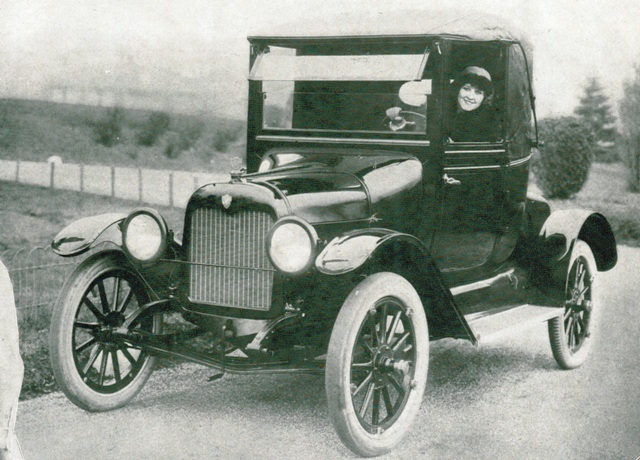 Ms. Hazel Dawn Drives Her Maxwell Car
Ms. Hazel Dawn Drives Her Maxwell Car
Ms. Gail Braybon, who was the main historian for women’s work studies stated, “For many women the war was a genuinely liberating experience that made them feel useful as citizens but that it also gave them the freedom and the wages only men had enjoyed so far”. Approximately 1,600,000 women joined the workforce between 1914-1918 making this a historical mark in women’s history. Women were not just a part of the Maxwell Motor car company but they purchased many Maxwell automobiles as well. Hazel Dawn, who was a member of the professional Theater community, said “the Maxwell is the ideal car for my recreation and all time driving experience”. The Maxwell automobile unfortunately, did not survive long after yet Walter P. Chrysler was quoted as saying, “the Maxwell turned out to be the greatest opportunity of my whole life”.
A special thanks to Robert Tate, Automotive Historian and Researcher, for donating the story to the MotorCities Story of the Week program. Photographs are courtesy of the National Automotive History Collection. (Bibliography: Maxwell Magazine. “The Century Girl in a Twentieth Century Car”. 1917. Motor -World publication. “Maxwell begins national Saleswomen Campaign”. 12/30/14 Motor- World publication. “Maxwell Takes up the Feminist Movement”. 12/27/14)
For further information on photos please visit http://www.detroitpubliclibrary.org/ or email This email address is being protected from spambots. You need JavaScript enabled to view it.. Please do not republish the story and/or photographs without permission of MotorCities National Heritage Area.
If you would like to contribute an article for the MotorCities newsletter, email This email address is being protected from spambots. You need JavaScript enabled to view it. or call 313-259-3425.

